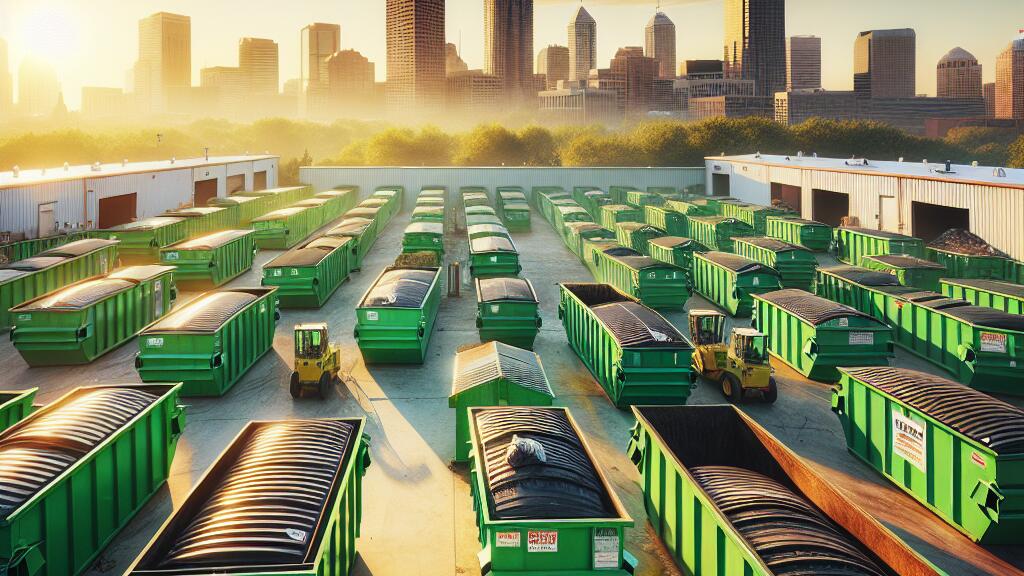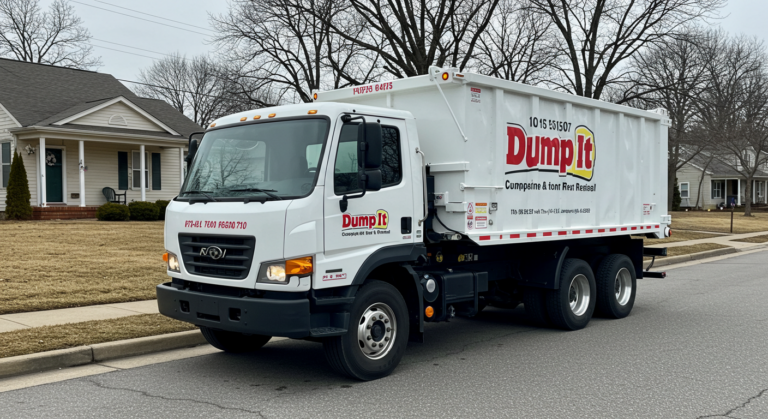How to Choose the Right Construction Dumpster in Indianapolis
Budgeting for Your Dumpster Rental
When budgeting for a dumpster rental, it’s essential to determine the size and type of dumpster that fits your project needs. Prices can vary significantly based on the dumpster’s capacity and the rental duration. You should also consider the nature of the waste you plan to dispose of, as certain materials may incur additional charges. Having a clear understanding of your requirements will help you avoid unexpected expenses that can arise from selecting an inadequate dumpster.
Understanding the full scope of potential fees is crucial. Rental companies often charge for delivery and pickup, and there may be extra costs for exceeding weight limits or keeping the dumpster beyond the agreed rental period. Be proactive in discussing all applicable fees with your provider before committing to a rental agreement. This approach ensures that you can create a realistic budget that accounts for all necessary expenses associated with your construction project.
Identifying Hidden Costs and Fees
When renting a construction dumpster, it’s important to look beyond the initial quoted price. Various fees can inflate the overall cost, impacting your budget. Factors such as delivery charges, pick-up fees, and weight limits often contribute to unexpected expenses. Additionally, some companies may impose surcharges for exceeding weight limits or unacceptable items in the dumpster. Carefully reviewing the rental agreement and asking the provider about potential extras can help prevent surprises.
Potential extra costs can also arise from the rental duration. While some providers include a set rental period in their base rate, extending the rental time usually incurs additional fees. Keeping your project timeline in mind is essential, as delays often lead to added charges. Understanding all aspects of the rental, including how to handle changes, ensures you remain within your budget and can plan accordingly for waste management.
Scheduling Your Dumpster Delivery
When planning your dumpster delivery, it is essential to consider the timeline of your project. Start by determining when you will need the dumpster on-site, allowing adequate time for rental companies to prepare based on their availability. A good practice is to schedule the delivery at least a few days in advance to avoid any last-minute issues. Be mindful of your project schedule, as delays in delivery can slow down the overall progress.
Clear communication with the rental company is crucial for a smooth delivery process. Provide the exact address and any necessary access instructions to ensure the dumpster arrives without complications. If the delivery location has special considerations, such as narrow driveways or limited parking, make sure to specify these details. This attention to detail helps prevent unforeseen obstacles that could lead to delays or additional costs.
Planning for Timely Dropoff and Pickup
Effective scheduling is essential for a smooth dumpster rental experience. Determine your project timeline early, as this will influence when you need the dumpster delivered and picked up. Factors such as the size of the project and any potential delays should be considered. Communicating these details to the rental company allows them to accommodate your schedule appropriately.
Always confirm the delivery and pickup times a day or two in advance to avoid any miscommunication. Consider providing the rental company with a designated spot for the dumpster that is easily accessible. This ensures a hassle-free drop-off and pick-up process. Being organized in these logistics minimizes potential disruptions to your project timeline.
Preparing for Your Dumpster Use
Before renting a dumpster, it is essential to plan how you will use it effectively. Consider the type of waste you will be disposing of and the dimensions of the dumpster you need. Organizing your materials beforehand helps streamline the loading process. Designate specific areas for different types of waste to maximize space and ensure that recyclable materials are separated from non-recyclable ones. This approach not only makes loading easier but also contributes to a more efficient waste management process.
When it’s time to load the dumpster, follow best practices to keep the area safe and organized. Start with heavier items at the bottom to create a stable foundation, then layer lighter materials on top. Avoid overfilling the dumpster, as this can lead to additional fees and complicate the collection process. Ensure that the waste is evenly distributed to make the most of the available space. By taking these steps, you can promote a smoother experience and help minimize any potential issues during your project.
Best Practices for Loading and Organizing Waste
Efficient loading of a dumpster is key to maximizing space and minimizing cost. Start by breaking down large items, such as furniture or appliances, to create more room. Distributing weight evenly across the dumpster will prevent it from tipping and make it easier for removal. Place heavier items at the bottom, and stack lighter items on top. This approach not only optimizes space but also ensures safety during the loading process.
Organizing waste by category helps facilitate recycling and disposal. Keep recyclables, such as plastics, glass, and metal, separate from general waste. Designate specific areas within the dumpster for different materials. This strategy not only aids in the disposal process but also promotes responsible waste management. Being mindful of what goes into the dumpster can also reduce the risk of additional fees related to non-compliance with local waste disposal regulations.
Considering EcoFriendly Disposal Options
In recent years, eco-friendly disposal options have become increasingly important for both individual projects and larger construction endeavors. Selecting a dumpster rental company that prioritizes green practices ensures that recyclable materials are properly sorted and diverted from landfills. Many providers in Indianapolis now work closely with recycling facilities, maximizing the potential for waste repurposing. This conscious approach not only benefits the environment but can also lead to cost savings if recyclables are identified and managed effectively.
Moreover, understanding local recycling regulations can aid in making informed decisions about waste disposal. Indianapolis has specific guidelines regarding what materials can be recycled and how they should be prepared for processing. Familiarizing oneself with these rules can streamline the disposal process and promote responsible waste management. Utilizing eco-friendly practices not only contributes to sustainability goals but also fosters a sense of community stewardship that resonates with residents and businesses alike.
Understanding Recycling and Disposal Facilities in Indianapolis
Indianapolis is home to a variety of recycling and disposal facilities that cater to different needs. Many of these facilities focus on diverting waste from landfills by providing services for recycling, composting, and proper disposal of hazardous materials. Residents and businesses can find local drop-off centers that accept a wide range of items, ensuring environmentally responsible practices are easily accessible.
It’s important for individuals to familiarize themselves with the specific guidelines of each facility. Some may have restrictions on the types of materials accepted, while others might charge fees for certain items. Engaging with these facilities helps promote sustainability and reduces the overall carbon footprint of waste disposal in the community. Properly utilizing these resources can lead to a more efficient waste management process.
FAQS
What factors should I consider when budgeting for a dumpster rental?
When budgeting for a dumpster rental, consider the size of the dumpster, rental duration, delivery and pick-up fees, and any additional costs such as weight overages or special permits.
Are there any hidden costs associated with renting a dumpster?
Yes, common hidden costs may include fees for exceeding weight limits, charges for prohibited items, or additional fees for extended rental periods. Always ask your rental provider for a full breakdown of potential costs.
How do I schedule the delivery and pick-up of my dumpster?
To schedule delivery and pick-up, contact your dumpster rental service in advance to discuss your project timeline. Ensure that you provide clear access instructions and confirm the dates for both delivery and pick-up.
What are some best practices for loading and organizing waste in a dumpster?
Best practices include loading heavier items first, spreading out materials for balanced weight distribution, and keeping hazardous waste separate. Organizing waste by type can also facilitate recycling efforts.
What eco-friendly disposal options are available for construction waste in Indianapolis?
Eco-friendly disposal options in Indianapolis include recycling facilities that accept construction materials, as well as companies that specialize in green waste disposal. Check with local services to find the best options for your project.







